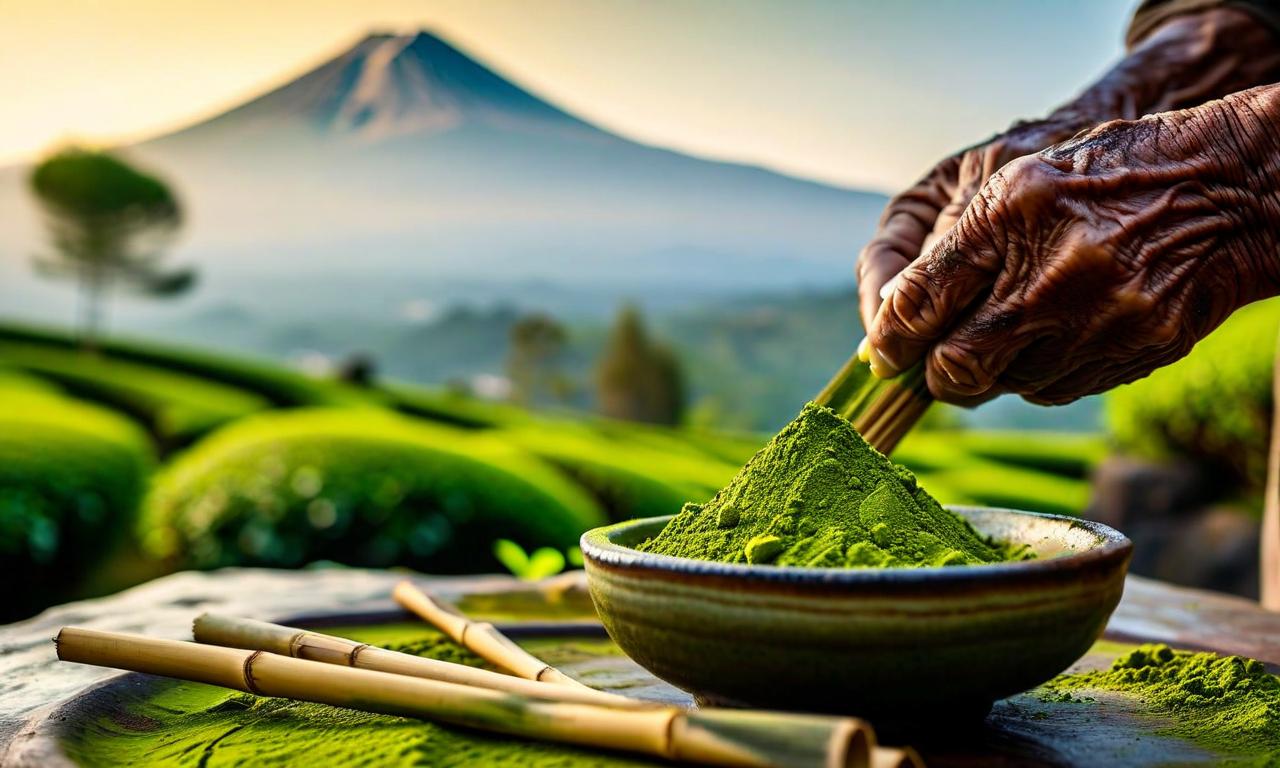Japan Faces Matcha Shortage as Global Demand Surges
Japan's matcha industry faces a supply crunch as global demand surges, despite tripled production in the last decade. A 2023 heatwave damaged tea bushes in Kyoto, reducing yields. Japan's aging agricultural workforce adds to production concerns. The global matcha market is projected to reach $5.50 billion by 2030. Supply chain pressures include rising U.S. tariffs, post-pandemic tourism, and bulk buying. Some shops in Uji are rationing sales. Experts worry about the dilution of matcha's cultural value. Producers urge consumers to use lower-grade matcha for baking and beverages, reserving premium varieties for traditional tea preparation.

*this image is generated using AI for illustrative purposes only.
Japan's iconic green tea powder, matcha, is facing a supply crunch as global demand continues to outpace production, despite a nearly threefold increase in output over the past decade. This shortage is driving up prices and forcing retailers to implement rationing measures, highlighting the growing pains of a booming industry.
Climate Challenges and Aging Workforce
The matcha shortage has been exacerbated by a record-breaking heatwave in 2023, which damaged tea bushes in the Kyoto region, a key area for matcha production. This climate-related setback has significantly reduced yields, putting additional pressure on an already strained supply chain.
Compounding the problem is Japan's aging agricultural workforce. With fewer young people entering the tea farming industry, there are concerns about the long-term sustainability of matcha production at current levels.
Global Demand and Market Projections
The global appetite for matcha shows no signs of slowing down. Market projections estimate that the global matcha market will reach $5.50 billion by 2030. This surge in popularity is driven by matcha's perceived health benefits and its versatility in culinary applications.
Supply Chain Pressures
Several factors are contributing to the supply chain pressures:
- Rising U.S. tariffs
- Post-pandemic tourism surge
- Bulk buying by tourists
These factors have led to inventory shortages, with some shops in Uji, a renowned matcha-producing area, implementing a one-can-per-person rule as stocks sell out within hours.
Cultural Implications
Experts are raising concerns about the potential dilution of matcha's cultural value as its popularity soars. There's a growing trend of using culinary-grade matcha in sweetened beverages, while ceremonial-grade matcha is being overused and misrepresented in some contexts.
Industry Response
Tea producers are urging consumers to be more discerning in their matcha usage:
- Use lower-grade matcha for baking and beverages
- Reserve premium varieties for traditional tea preparation
This approach aims to ensure the sustainability of high-quality matcha production while meeting the diverse needs of the global market.
As Japan grapples with this matcha shortage, it faces the challenge of balancing increased production with maintaining the quality and cultural significance of this centuries-old tea tradition. The situation underscores the delicate interplay between global demand, agricultural practices, and cultural preservation in an increasingly interconnected world.


























